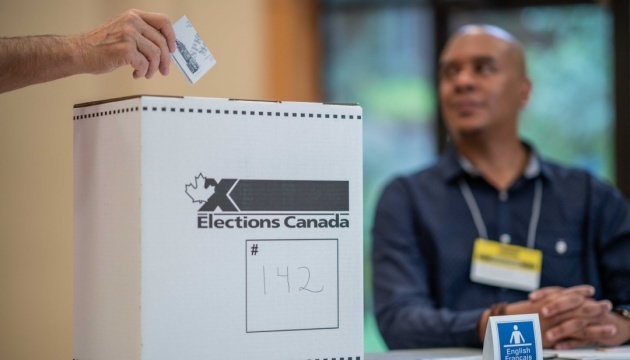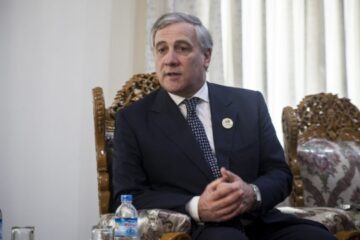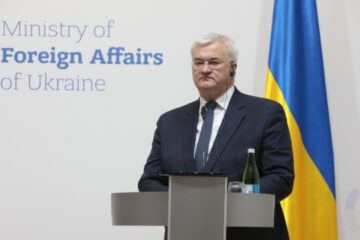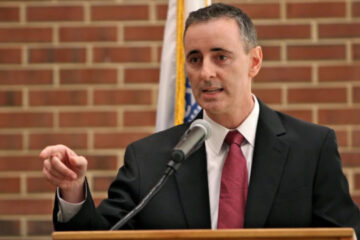The Ukrainian Canadian Congress (UCC) conducted a survey of the leaders of Canada’s national political parties ahead of the Snap Federal Election due on April 28.
The upcoming snap election to be held in Canada on April 28 is of the greatest importance for Canada itself, its alliances, and the country’s role in the world over the past decade. Their results will determine not only who will lead the country as a trade war is unfolding with the United States, but will also choose a new government, given that Justin Trudeau is not running for prime minister this time around. The elections will also be of great importance for Ukraine as Canada remains its most reliable partner in North America at this crucial juncture.
In view of this, the Ukrainian Canadian Congress sent questionnaires to the headquarters of the four political parties whose leaders are claiming the prime minister’s seat. The answers turned out to be informative and somewhere surprising.
RULES OF THE GAME AND ELECTION PREDICTIONS
Canada’s political system stipulates that the party that gets the most votes in a federal election generally forms the government and sets the country’s course for the next four years. Although there are 16 registered political parties at the federal level, five of them have stable representation in parliament: the Liberal Party, currently led by Mark Carney; the Conservative Party, led by Pierre Poilievre; the left-wing New Democratic Party; the Green Party; and the independence-seeking Bloc Quebecois, which controls about 10 percent of the seats in parliament.
Because the Bloc Quebecois is ostensibly focused on regional issues only, the Ukrainian Canadian Congress did not send it its questionnaire.
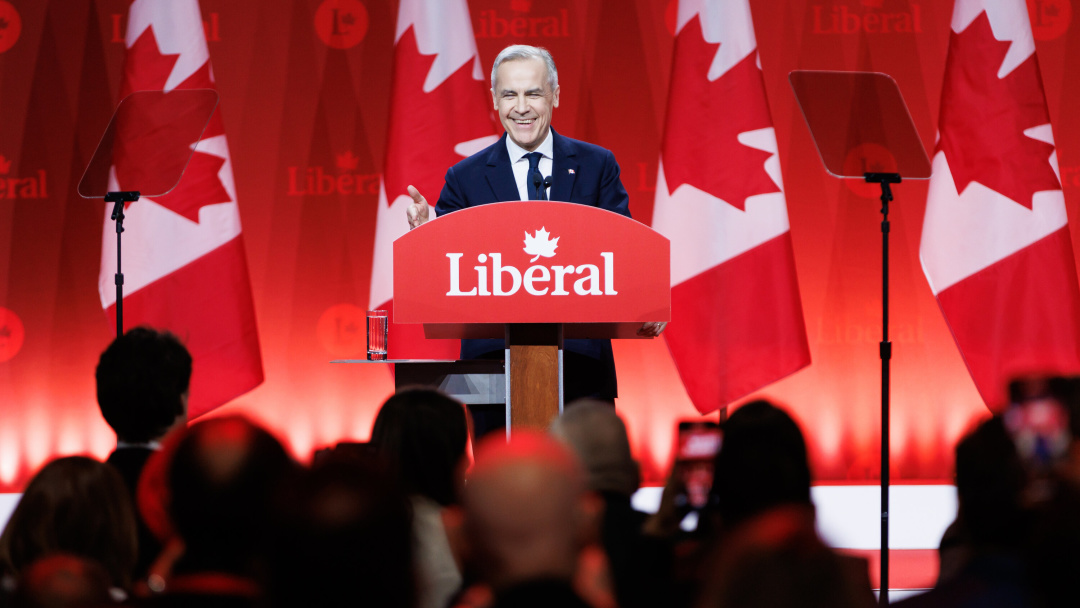
The current election campaign is one of the most unpredictable in modern Canadian history. At the beginning of it, the opposition Conservatives were significantly ahead of the Liberals and claimed to form a new government. Party leader Pierre Poilievre urged the then-Prime Minister Justin Trudeau to resign and call a snap federal election, which the latter had long resisted. After Trudeau did resign, handing over power to Mark Carney, and an election was announced in late March, the gap between the Liberals and Conservatives began to narrow rapidly.
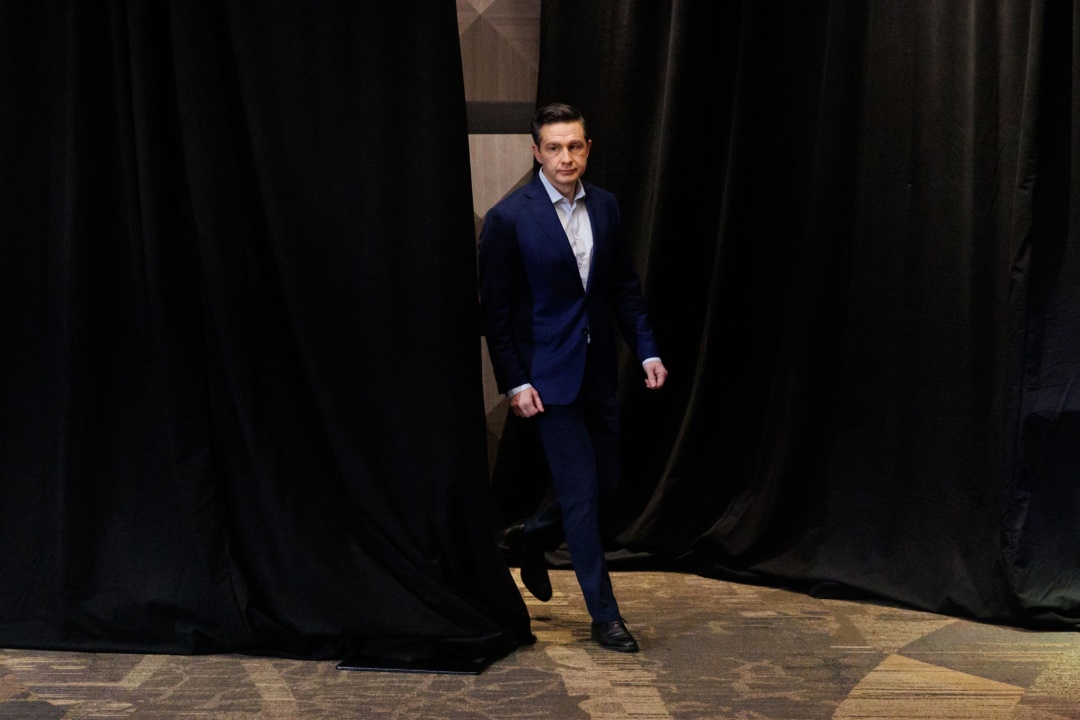
External factors — the aggressive rhetoric of the newly elected US President Donald Trump and his unjustified trade war – have changed the situation. This threw in doubt the sustainability of relations with Canada’s foremost partner and brought the economy to the forefront of the election campaign. Issues of international policy and support for Ukraine have receded into the background.
Therefore, the survey conducted by the Ukrainian Canadian Congress has become a valuable indicator, because none of the candidates has emphasized the Ukrainian direction during the campaign so far.
AID TO UKRAINE IS NECESSARY, AND IT WILL BE CONTINUED
Since the beginning of Russia’s full-scale invasion, all the major political parties in Canada have been committed to supporting Ukraine, and this has not changed, as revealed by the results of the UCC survey. Although the political parties surveyed differed in approaches, all parliamentary parties advocate providing Ukraine with military and other assistance.
“Canada is a nation of values that champion human rights, democracy, and the rule of law. We will defend our values of peace and stability by continuing to support Ukraine and Ukrainians. We will maintain robust military support, building on the over $4.5 billion already committed. Annual levels will respond to Ukraine’s needs and be coordinated with allies to ensure impact and sustainability,” the Liberal Party said when asked what level of annual military support (weapons, ammunition, military communications, training programs, etc) they will provide to Ukraine if elected to Government.
The Conservatives said a Conservative government would maintain current financial and military aid for Ukraine. Instead of wasting resources on decommissioning surplus military equipment, they would donate it to Ukraine while ensuring the Canadian Armed Forces are provided with new weapons and equipment. They also committed to resume sending Radarsat-2 satellite imagery to Ukraine.
The Green Party, which traditionally advocates for only diplomatic means to peace, this time took an uncharacteristically proactive position: “We stand with Ukraine. We support continued military and humanitarian aid. That includes training, equipment, and support for refugees. Canada must help Ukraine defend its people, its democracy, and its sovereignty. We will increase support where needed”.
We have full support from Canada regarding Ukraine’s membership in NATO. In 2015, only the Liberal Party spoke out in support of Ukraine’s accession to NATO. Today, there has been a consensus in that country with regard to this issue. Conservatives, Liberals and New Democrats are all supportive of Ukraine’s full-fledged membership in the Alliance.
New Liberals: “Ukraine has the right to determine its own security future, and we support its eventual NATO membership when conditions allow”.
Conservatives: “Conservatives have always supported NATO’s efforts to support our Ukrainian allies and we support Ukraine’s right to self defense and its right to choose its own security arrangements. We will continue to work with our NATO partners as Ukraine works towards realizing its aspirations for NATO membership.”
The Greens are more cautious, saying, “We support Ukraine’s sovereignty and its right to decide its own future security. Ukraine deserves safety, freedom, and self-determination. We will support Ukraine’s efforts to protect its people and work toward lasting peace”.
This unity of positions is a clear evidence of how much Ukraine’s international position has changed after 2022.
As with military aid, all parties recognize that Ukraine’s economic resilience is key to its victory. Therefore, none of them questions the need for further macro-financial, humanitarian and institutional support. “A new government led by Mark Carney will continue to offer macroeconomic, humanitarian, and development assistance to help Ukraine maintain essential services and support long-term reconstruction,” the Liberal Party said.
The Conservatives, asked if they would continue support for Ukraine’s economy and state budget, said, “That support will continue under a new Conservative government”, while the New Democratic Party have called for increased funding for de-mining efforts in Ukraine; prosecution of those responsible for the abduction and forcible transfer of Ukrainian children to Russia and increased support for the return of these children to Ukraine; increased financial and political support for ICC and ICJ investigations; and support for anti-corruption and democracy efforts.”
The issue of support for displaced Ukrainians is also important, as about 300,000 Ukrainians have arrived in Canada after February 24, 2022. Can they count on further support? All parties unequivocally answered “yes”.
“New Democrats fought hard to ensure Ukrainians coming to Canada would be supported, and advocated for extension of visitor, work and study permits for Ukrainians in Canada.
The Greens: “Yes. We want to help Ukrainians stay in Canada, and give them a safe place to live, healthcare, and education. People fleeing war need safety and stability — and Canada can help. Everyone deserves the opportunity to build a life with dignity”.
These words actually summarize the sentiments and positions of other political forces.
A CLEAR POSITION ON THE AGGRESSOR COUNTRY
When asked if they support the seizure of approximately $300 billion in frozen Russian assets and their repurposing for Ukraine’s defense, all the parties surveyed answered in the affirmative.
The Liberals: Yes. Canada has led on this, and we will support working with G7 partners on a legal framework to repurpose frozen Russian assets to aid Ukraine’s recovery. A new government led by Mark Carney will continue building on these actions to seize Russian sovereign assets and using them to fund Ukraine’s reconstruction.
The Conservatives: Yes. It was Conservatives which first introduced the Justice for Victims of Foreign Officials Act, also known as the Sergei Magnitsky Law, which first enabled the sanctioning of Russian oligarchs in response to Putin’s illegal and unprovoked invasion of Ukraine. Conservatives supported Bill S-217 and saw it as the natural next step of providing justice for Ukraine. A new Conservative government will move to freeze and seize this vast wealth which should be used to support Ukraine’s defense”.
The Greens: Russia must take responsibility for its war. We support freezing Russian assets to help ensure Russia pays for the damage it has caused. We believe that anyone potentially associated with the war in Ukraine should have to pay the consequences. This should be in ways that are fair, legal, and aligned with international law.
There has been a consensus also on the issue of Russia sanctions loopholes and implementing a full trade embargo on Russia. All the parties surveyed spoke out in favor of increasing pressure and closing loopholes for circumventing restrictions. The Liberals vowed that “A new government led by Mark Carney will uphold the enforcement of sanctions, close loopholes, and pursue further trade restrictions in coordination with our allies”.
The Greens’ answer was more cautious, stating, “We support strengthening sanctions to hold Russia accountable for its war. While we haven’t taken a formal position on a full embargo, sanctions must be effective. That means closing loopholes and blocking any trade that helps fund Russia’s war.”
The Conservatives was the only party to have gone as far as declaring their readiness to introduce a full trade embargo against Russia: “Conservatives have been clear from the start that we must use all of Canada’s available sanctions laws to provide maximum pressure on Russia’s oligarchs, government officials, and economy.” However, the real effect of this embargo will be limited: bilateral trade between Canada and Russia has already decreased by 70 percent since Russia launched its full-scale invasion of Ukraine in February 2022.
Asked if they would support designating the Russian Federation a state supporter of terrorism, only the Conservatives stated they would support such a move: “Conservative MPs have sponsored a petition in Parliament to immediately and publicly designate the Russian Federation as a state sponsor of terrorism. Russia’s actions in Ukraine constitute war crimes and crimes against humanity. A Conservative government will use all appropriate legal measures to hold Russia accountable for these atrocities”.
Others are more modest in their promises in this regard. The Liberals: We continue to assess appropriate designations and actions. While we use existing legal tools to hold Russia accountable, we remain aligned with allies in applying coordinated sanctions and diplomatic pressure”.
“New Democrats pushed for key pieces of Canada’s Ukraine strategy, including four motions we sponsored in the House of Commons – which called on Canada to: help document Russian war crimes and crimes against humanity, declare the Russian Federation is committing acts of genocide, designate the Wagner Group as a terrorist entity, and honor those who gave their lives in defense of our shared values.”
The Greens: “Russia’s actions in Ukraine are a violation of international law. We support strong international measures to hold the regime accountable. We have not formally endorsed this specific designation. But we believe the global response must reflect the severity of Russia’s aggression”.
The reason is not a lack of political will, but the serious implications for global stability, as this will effectively preclude any official contacts with the Russian Federation.
The issue of diplomatic relations is another sore spot. No party gave a direct answer regarding the expulsion of enough Russian diplomats from Canada to ensure parity with the number of Canadian diplomats in Russia. The Liberal Party confined its answer to a diplomatic wording: “A new government led by Mark Carney will work with our national security agencies, and Global Affairs Canada to examine the necessary level of diplomatic ties with countries, including Russia”. Conservatives said they “…recognize and understand that under the Vienna conventions, any diplomat can be expelled by their host country at any time, and no reason is required. We will not hesitate to expel any diplomat involved in foreign interference, or the intimidation/harassment of Canadians”. The other parties spoke equally cautiously, with the Greens saying they “…condemn Russia’s invasion of Ukraine. We support strong diplomatic and legal measures to hold Russia accountable. We have not taken a formal position on cutting diplomatic ties or diplomatic parity”.
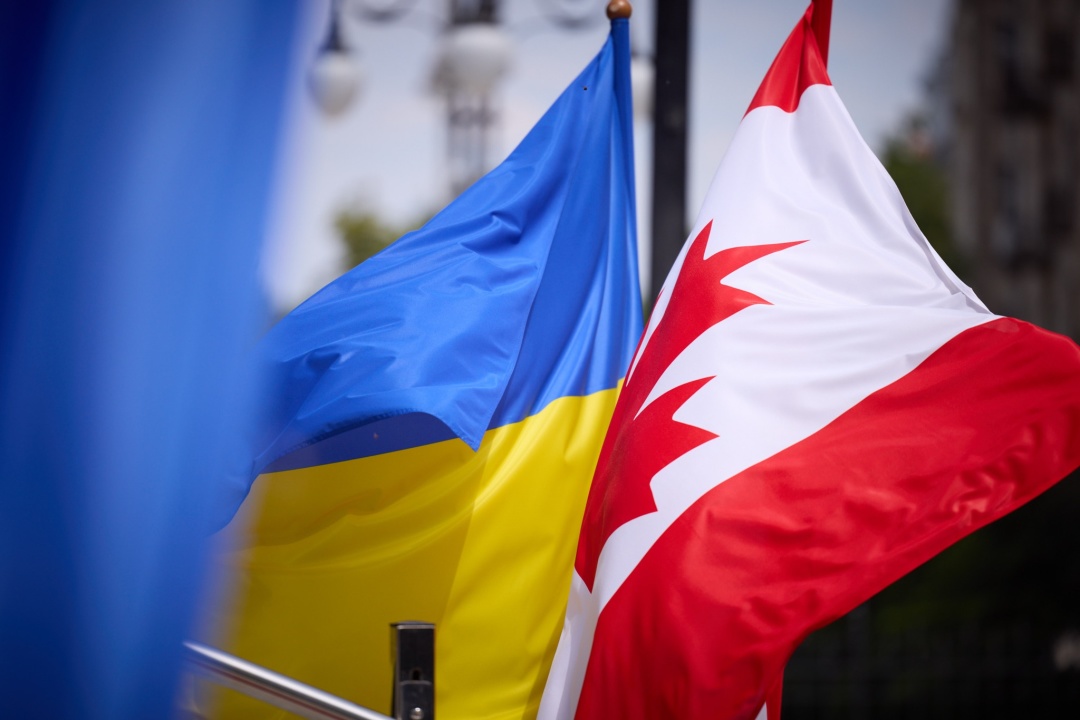
UKRAINIAN COMMUNITY AS A FACTOR OF POLITICAL CONSENSUS
The survey results found that support for Ukraine in Canada has become a matter of general consensus. All the major parties questioned spoke out in favor of continuing supporting Ukraine militarily, economically, and politically. And whoever wins the April 28 elections, the policy of supporting Ukraine will remain on track. This is a positive signal, especially against the backdrop of unpredictable shifts in US policy.
The Conservatives demonstrate the most aggressive rhetoric. But their position is rather a result of their opposition status: it is easier to speak when you are not held accountable for implementing your promises. The Liberals, who have been in power for almost a decade now, do not always sound so loud, but they are the ones who make the lion’s share of specific decisions and programs in support of Ukraine. The New Democrats and the Greens are also on Ukraine’s side, but their chances of forming a new Government remain bleak.
Summing it up, the position of Canadian parliamentarians has become significantly more pro-Ukrainian in recent years, which is especially true for the New Democratic and Green parties. And here the role of the Ukrainian community in Canada should never be underestimated. It is thanks to the active work of the Ukrainian Canadian Congress and the indifference of more than one and a half million Ukrainians living in Canada that the Ukrainian issue remains high on the agenda of any government.
Therefore, it is crucial that the Ukrainian community in Canada continues to remind candidates and parties: the values being fought for and defended by Ukraine are shared values of both Ukraine and Canada. And defending these values is a duty of all, most particularly at the time as Russia is continuing its war of aggression against Ukraine, when Ukrainians need help and support.
Maksym Nalyvaiko, Ottawa
Headline photo: Elections Canada

